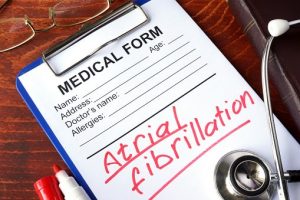
Another recently discovered precursor to the condition is premature atrial contractions, which are a fairly common form of heart arrhythmia or irregular heart rhythms. This information comes from a new study that has found a connection between premature atrial contractions and the development of atrial fibrillation.
Up until now, premature atrial contractions were considered a non-threatening condition to be monitored. The results of this new research have shown that this may not be the case and that these heart incidents should be taken as a warning for future cardiac medical concerns. The researchers tested the frequency of premature atrial contractions during a treadmill exercise stress testing (TMT) in relation to the later onset of atrial fibrillation.
Exercise-Induced Heart Arrhythmia Connected to Atrial Fibrillation
The participants for the study were divided into groups based on the presence of premature atrial contractions. None of the participants showed signs of heart disease or atrial fibrillation at the outset.
Participants were instructed not to take any medications that could slow their heart rate before taking part in the TMT portion of the study. Data was recorded during the TMT about heart rate and blood pressure, as well as through interviews with the participants, performed by medical professionals.
The researchers used the data from several other studies to predict the outcome that frequent premature atrial contractions are, in fact, a reliable predictor of future atrial fibrillation. According to their report, this is the first study to closely examine the relationship between premature atrial contractions during TMT and newly onset atrial fibrillation.
Previous research has shown a connection between atrial fibrillation and sinus-node dysfunction. In the current research, this condition was associated with an increased presentation of premature atrial contractions during the TMT. This is one of the data points used by the researchers to confirm the association between premature atrial contractions and atrial fibrillation.
Ultimately, the researchers in this study were able to cement through their testing and data collection that patients experiencing frequent exercise-induced premature atrial contractions are at a higher risk for the development of atrial fibrillation, though they concede that additional studies will be needed to confirm these results and solidify the presence of exercise-induced premature atrial contractions as a potential tool for diagnosis or prediction of atrial fibrillation in patients.
Limitations of the study were noted, as the study was a non-randomized observational study. It is possible there was a bias of detection of early-onset atrial fibrillation, as the researchers could not use more invasive diagnostic techniques in their observations. The number of participants displaying atrial fibrillation could have been underestimated.
Related:
- Depression Linked to Atrial Fibrillation, Increasing the Risk of Stroke and Blood Clots
- Atrial fibrillation, irregular heartbeat risk higher with poor sleep in elderly